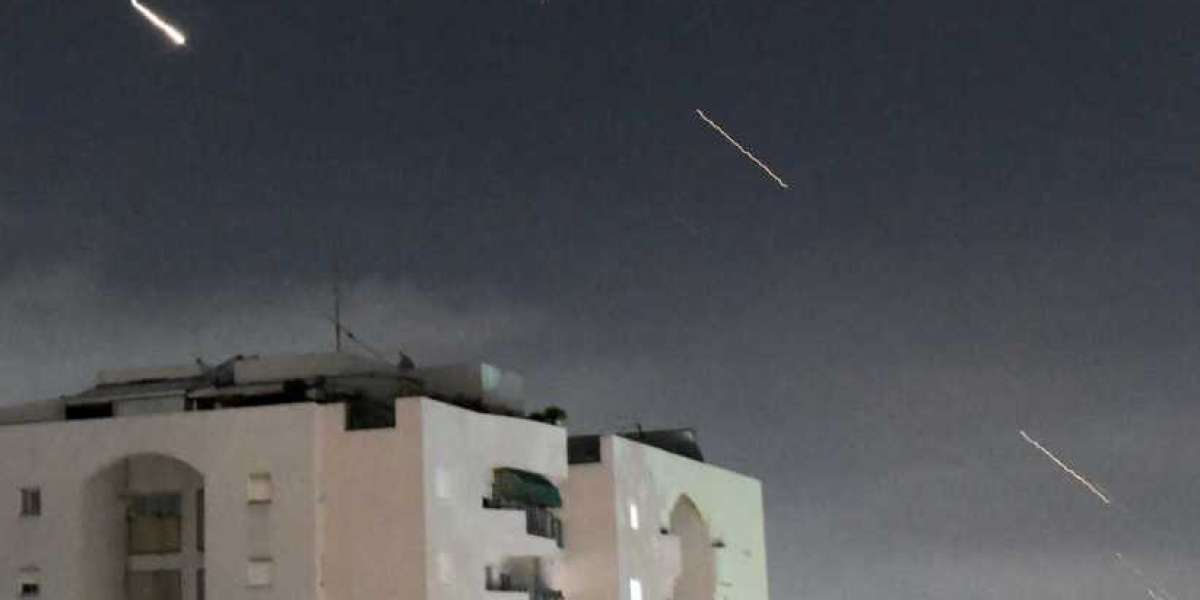Iran Strikes Israel: Escalation in the Middle East
Retaliation for Damascus Strike
In a dramatic escalation of tensions in the Middle East, Iran launched a barrage of drones and missiles at Israel on Saturday night. The attack was purportedly in retaliation for a suspected Israeli strike in Damascus that resulted in the deaths of several Iranian commanders. This exchange of fire has brought the region closer to the brink of a full-blown regional war.
Israeli officials reported that Iran fired more than 300 projectiles, comprising 170 drones, 30 cruise missiles, and 120 ballistic missiles directly at Israel. This marks the first instance of Iran targeting the Jewish state in such a direct and overwhelming manner. Furthermore, Iran-backed militants in Lebanon, Iraq, and Yemen also joined the assault, launching rockets, drones, and missiles towards Israel.
Daniel Hagari, a spokesman for Israel’s military, stated that 99% of the barrage had been intercepted. However, despite Israel's defense efforts, there were casualties, including a Bedouin girl critically injured by shrapnel in the south of the country. Additionally, an air force base suffered minor damage. Nevertheless, Israel managed to reopen its airspace at 7:30 am local time, although precautions such as school closures and restrictions on large gatherings remained in place.
Israel’s response to the attack was firm. Foreign Minister Israel Katz reiterated the country's stance, warning of retaliation if Iran directly targeted Israel again. Meanwhile, hardliners within Israel called for decisive action, emphasizing the need for a robust response to the aggression.
International Response and Diplomatic Efforts
The attack drew condemnation from global leaders, with US President Joe Biden describing it as "unprecedented." Biden announced that US aircraft and two US destroyers stationed in the region had assisted in intercepting the barrage. Both the UK and France also provided support in repelling the attack.
In response to the escalating situation, President Biden announced plans to convene other G7 leaders to coordinate a united diplomatic response to Iran’s aggression. This move underscores the gravity of the situation and the need for international cooperation in de-escalating tensions in the region.
Let’s hope for de-escalation in the Middle East as strong leadership and diplomatic efforts are needed to quell tensions. War is a dire alternative, though understandable in times of perceived threat and retaliation.








